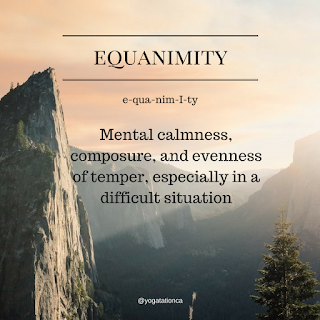Emotional Intelligence : Part 4 of 10 in Fostering Trust and Intimacy in Relationships
Welcome to part 4 of this 10-part series, where we delve into the intricacies of building trust and intimacy in relationships of all kinds. At each stage, we'll unveil a new strategy, meticulously crafted to enhance the bonds you share with those around you. Next up - Understanding Emotions!
RELATIONSHIPSSKILLS
2/23/20248 min read


Emotional intelligence, often referred to as EQ, is a vital skill that plays a significant role in building trust and intimacy in our relationships. It is the ability to understand and manage our own emotions, as well as recognize and empathize with the emotions of others. By developing our emotional intelligence, we can create deeper connections, foster trust, and enhance the intimacy in our relationships.
What is Emotional Intelligence?
Understanding emotional intelligence is like embarking on a journey into the depths of our own emotional landscape, where we're challenged to confront our vulnerabilities head-on. It's about peeling back the layers of our emotions, from the raw intensity of anger to the tender warmth of love, and learning to navigate them with grace and self-awareness.
But emotional intelligence isn't just about mastering our own emotions; it's also about having the courage to empathize with the feelings of others. It's about opening our hearts to their struggles and triumphs, and being willing to walk alongside them in their journey. By embracing empathy, we not only forge deeper connections but also create a safe space where vulnerability is met with understanding and compassion.
Imagine finding yourself in the midst of a heated argument with your partner, your emotions running high and tensions escalating. Instead of lashing out or shutting down, you take a moment to pause and connect with the vulnerability beneath the surface. In that moment of empathy and understanding, you're able to transform conflict into connection, paving the way for greater intimacy and trust in your relationship.
Understanding and Managing Emotions
Understanding and managing our emotions is a journey that requires both introspection and practice. As Brene Brown beautifully articulates in her book "Atlas of the Heart," emotions are our internal compass, guiding us through life's ups and downs. They're not something to be feared or suppressed but rather embraced and understood.
For me, learning to understand my own emotions is a life-long journey, where I pass through trenches of despair and peaks of bliss. I vividly remember the time that I realized I needed to attend to my internal landscape. I was in college and had gone through a traumatic loss, which served as a trigger for grief long suppressed. In that moment, I realized that my emotions were like untamed wild horses, threatening to trample over everything in their path if left unchecked.
It was a wake-up call that prompted me to delve deeper into the world of emotional intelligence, seeking out resources and guidance to help me navigate the turbulent waters. Through strategies such as journaling, meditation, and therapy, I began to unravel the tangled web of my emotions, learning to identify their nuances and understand their underlying triggers.
But understanding my emotions was only half the battle; learning to manage them was where the real work began. I discovered that emotional regulation wasn't about suppressing or denying my feelings but rather acknowledging them and choosing how to respond in a way that aligned with my values and goals.
As I honed my skills in emotional management, I found myself better equipped to navigate the complexities of interpersonal relationships. Instead of reacting impulsively in moments of conflict, I learned to (sometimes) pause, breathe, and respond with empathy and compassion. This newfound ability not only deepened my connections with others but also fostered a greater sense of trust and intimacy in my relationships.
In the words of Brene Brown, "Owning our story can be hard but not nearly as difficult as spending our lives running from it." Embracing our emotions, both the light and the dark, is the first step toward building emotional intelligence and cultivating deeper, more meaningful connections with ourselves and others.
Signs That it May be Time to Evaluate Your EQ
In another article, I will cover why EQ is something that differs across individuals. For now, here are some signs that may indicate that someone could benefit from improving their emotional intelligence:
Difficulty Managing Emotions: Individuals with low EQ may struggle to regulate their emotions effectively. They may experience frequent mood swings, intense emotional reactions, or have difficulty calming down when upset.
Poor Interpersonal Relationships: Low EQ can lead to challenges in building and maintaining healthy relationships. People with limited emotional intelligence may struggle with communication, empathy, and conflict resolution, leading to strained interactions with others.
Lack of Self-Awareness: A lack of self-awareness is a common indicator of low EQ. Individuals may have difficulty recognizing and understanding their own emotions, strengths, weaknesses, and how their behavior impacts others.
Difficulty Empathizing: Empathy is a key component of emotional intelligence, and individuals with low EQ may struggle to empathize with others. They may have difficulty understanding or appreciating others' perspectives, feelings, and experiences.
Ineffective Communication: Poor communication skills, such as difficulty expressing oneself clearly, listening attentively, or understanding nonverbal cues, can signal a need for EQ development. Effective communication is essential for building rapport, resolving conflicts, and fostering intimacy in relationships.
Stress and Burnout: Low EQ may contribute to higher levels of stress, anxiety, and burnout. Individuals who lack emotional awareness and coping skills may find it challenging to manage the demands of daily life, leading to feelings of overwhelm and exhaustion.
Difficulty Adapting to Change: Adaptability is another hallmark of emotional intelligence. Those with lower EQ may struggle to adapt to changes, transitions, or unfamiliar situations. They may resist change, become easily overwhelmed, or struggle to problem-solve effectively.
Limited Resilience: Resilience, or the ability to bounce back from setbacks and adversity, is closely tied to emotional intelligence. Individuals with low EQ may have difficulty coping with setbacks, failures, or disappointments, leading to feelings of hopelessness or helplessness.
Recognizing these signs can be the first step toward improving emotional intelligence. By developing self-awareness, empathy, communication skills, and stress management techniques, we can enhance our EQ and cultivate more fulfilling personal and professional relationships.
Strategies for Developing Emotional Intelligence
Developing emotional intelligence is an ongoing process that requires self-reflection and practice. Here are some strategies to help you enhance your emotional intelligence:
Practice Self-Awareness:
Developing self-awareness is the first step in developing any new skill. Self-awareness means the understanding of our ourselves and having a sense of ourselves that is established in our values. When it is lacking, it impedes our ability to self-manage and it is difficult, if not impossible, to know and to respond to the others’ feelings. One strategy for enhancing self-awareness is journaling. For example, keeping a daily journal where you reflect on your thoughts, feelings, and experiences can help you gain insight into your emotional patterns and triggers. Studies have shown that journaling can improve emotional awareness and regulation by providing a structured way to process and make sense of our emotions (Drigas & Papousti, 2018).
Practice Self-Regulation:
Once you've acknowledged and embraced your emotions, you gain improved control over them. The more adept you become at managing your emotions, the better equipped you'll be to express them constructively when necessary (Sunindijo et. al., 2007).Numerous studies have demonstrated the effectiveness of mindfulness meditation in reducing emotional reactivity and enhancing emotional regulation (Goleman, 1995; Kabat-Zinn, 2003). By practicing mindfulness, you can learn to observe your thoughts and feelings without judgment, allowing you to respond to them more skillfully.
Another popular component of mindfulness is something called equanimity. This is the practice of complete acceptance and non-reactivity to whatever your current experience is, including the acceptance of mental and psychological suffering. When people practice this, their tolerance for discomfort gets stronger naturally resulting in less reactivity.
Cultivate Empathy:
As you enhance your self-awareness and self-management, your understanding of others' experiences also grows. That is because recognizing and empathizing with others' experiences is an extension of your own self-awareness. What we reject within ourselves, we usually reject within others.
By engaging in perspective-taking exercises we can further cultivate empathy. For instance, imagine yourself in someone else's shoes during a difficult situation and consider how they might be feeling. Practicing empathy leads to greater emotional understanding and connection with others (Davis, 1983). This is also usually accomplished through non-verbal means of communication, including things such as eye-contact, posture and tone of voice (Elfenbein and Ambady, 2002).
Remember that empathy isn't necessarily correlated with sympathy, which is feeling bad for another persons experience. Though they often occur together, empathy is specifically addressing ones ability to identify what another person is feeling, usually feeling the emotion themselves.
Enhance Social Skills:
In the realm of emotional intelligence, social skills encompass a set of abilities crucial for effectively navigating interpersonal interactions and influencing others' emotions. These skills range from perceiving and understanding others' feelings and thoughts to fostering collaboration and teamwork, demonstrating leadership, and adeptly managing conflicts.
Essentially, social skills empower individuals to optimize their interactions, inspire others, build rapport, and facilitate growth in relationships. Expertise in emotions involves honing sensitivity to emotional cues, accurately assessing their relevance in various contexts, and strategically leveraging emotional dynamics to negotiate and respond effectively.
Seek Feedback and Learn from Mistakes:
Reflect on past interactions and seek feedback from trusted friends or mentors. Ask them to provide honest feedback on your communication style and areas for improvement. Research suggests that seeking feedback and learning from mistakes is a key component of emotional intelligence development (Goleman, 1998). This shouldn't be too surprising since this is how humans learn essentially any skill.
This series is all about relationships, and the things that impact them. So turn to those around you and ask them how they experience you. Seeking feedback is vulnerable, but also essential for us to build up resilience and make positive changes. There are also EQ assessments out there that you could pursue and use as a measure of growth over time.
Final Thoughts
By developing our emotional intelligence, we gain the ability to navigate the complex landscape of human emotions with finesse and empathy. This not only enhances our communication skills but also fosters deeper connections built on trust, understanding, and mutual respect.
With higher EQ's, we can better manage conflicts, express ourselves authentically, and support our loved ones in times of need. It allows us to recognize and regulate our own emotions while also empathizing with the emotions of others, creating a supportive and nurturing environment for growth and intimacy.
Ultimately, investing in emotional intelligence is an investment in our relationships. It empowers us to cultivate healthier, more harmonious connections that enrich our lives and bring us closer to those we care about. So, let's embrace the journey of developing our emotional intelligence and watch as it transforms our relationships for the better.
That's it for now. Stay tuned for the next article in this series on fostering trust and intimacy in our relationships, Empathizing with Others.
References:
Anobé, Badenhorst & Dawie, Smith. (2007). Misconceptions about emotional intelligence: Deploying emotional intelligence in one’s life dimensions. South African Journal of Human Resource Management. 5. 10.4102/sajhrm.v5i3.146.
Drigas, A. S., & Papoutsi, C. (2018). A New Layered Model on Emotional Intelligence. Behavioral sciences (Basel, Switzerland), 8(5), 45. https://doi.org/10.3390/bs8050045
Elfenbein H.A., Ambady N. On the universality and cultural specificity of emotion recognition: A meta-analysis. Psychol. Bull. 2002;128:203–235. doi: 10.1037/0033-2909.128.2.203.
Salovey, P. (2001). Applied emotional intelligence: Regulating emotions to become healthy, wealthy, and wise. In J. Ciarrochi, J. P. Forgas, & J. D. Mayer (Eds.), Emotional intelligence in everyday life: A scientific inquiry (pp. 168–184). Psychology Press.
Sunindijo R.Y., Hadikusumo B.H., Ogunlana S. Emotional intelligence and leadership styles in construction project management. J. Manag. Eng. 2007;23:166–170. doi: 10.1061/(ASCE)0742-597X(2007)23:4(166).




